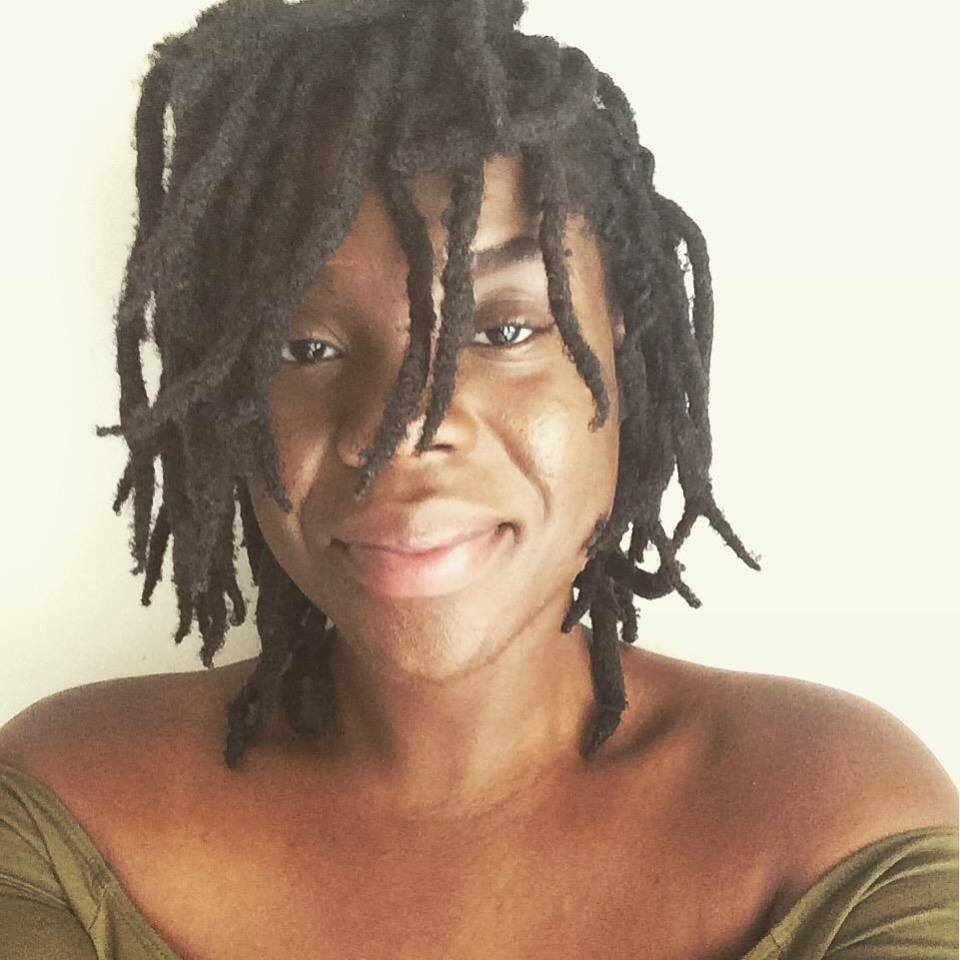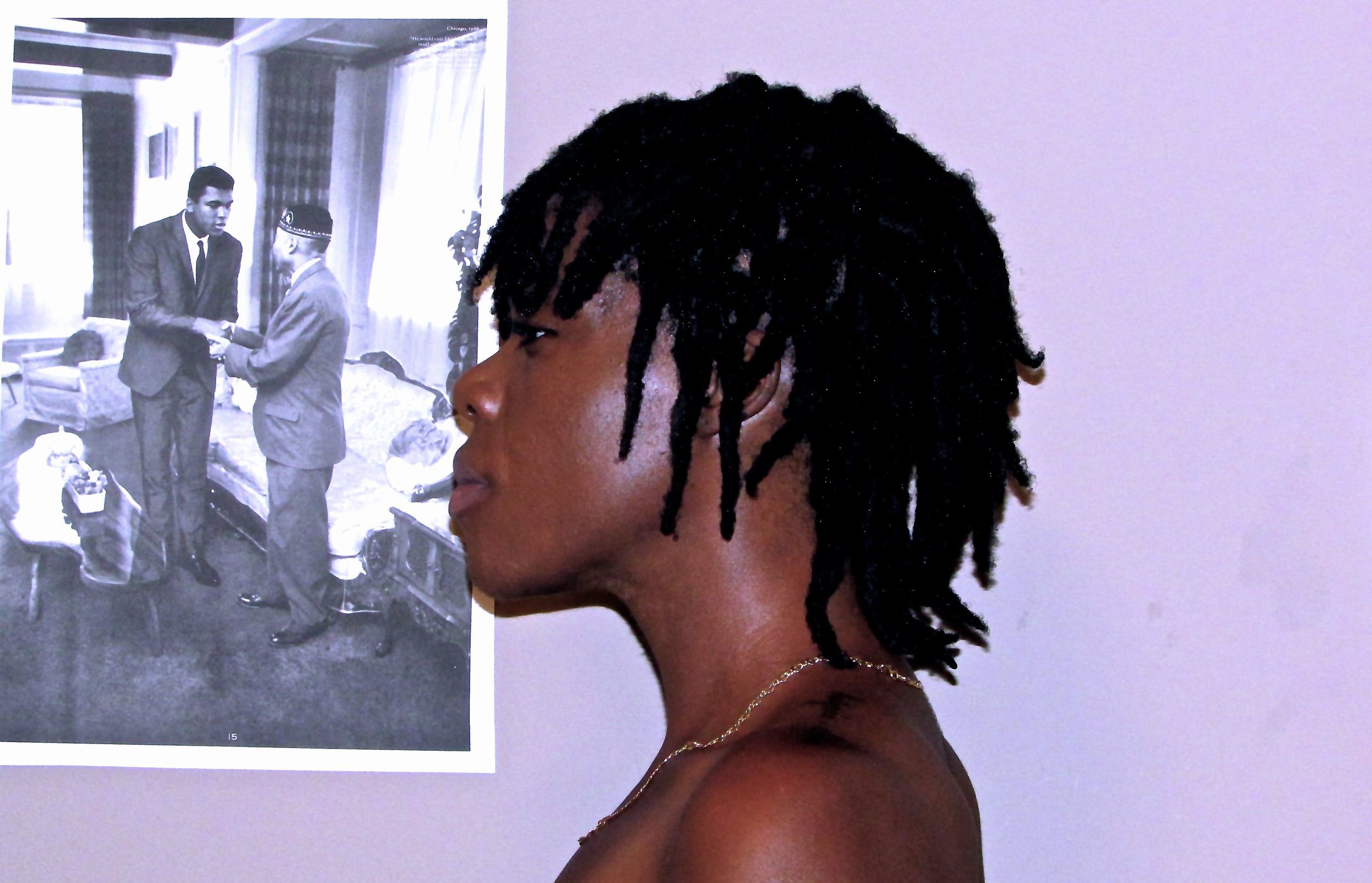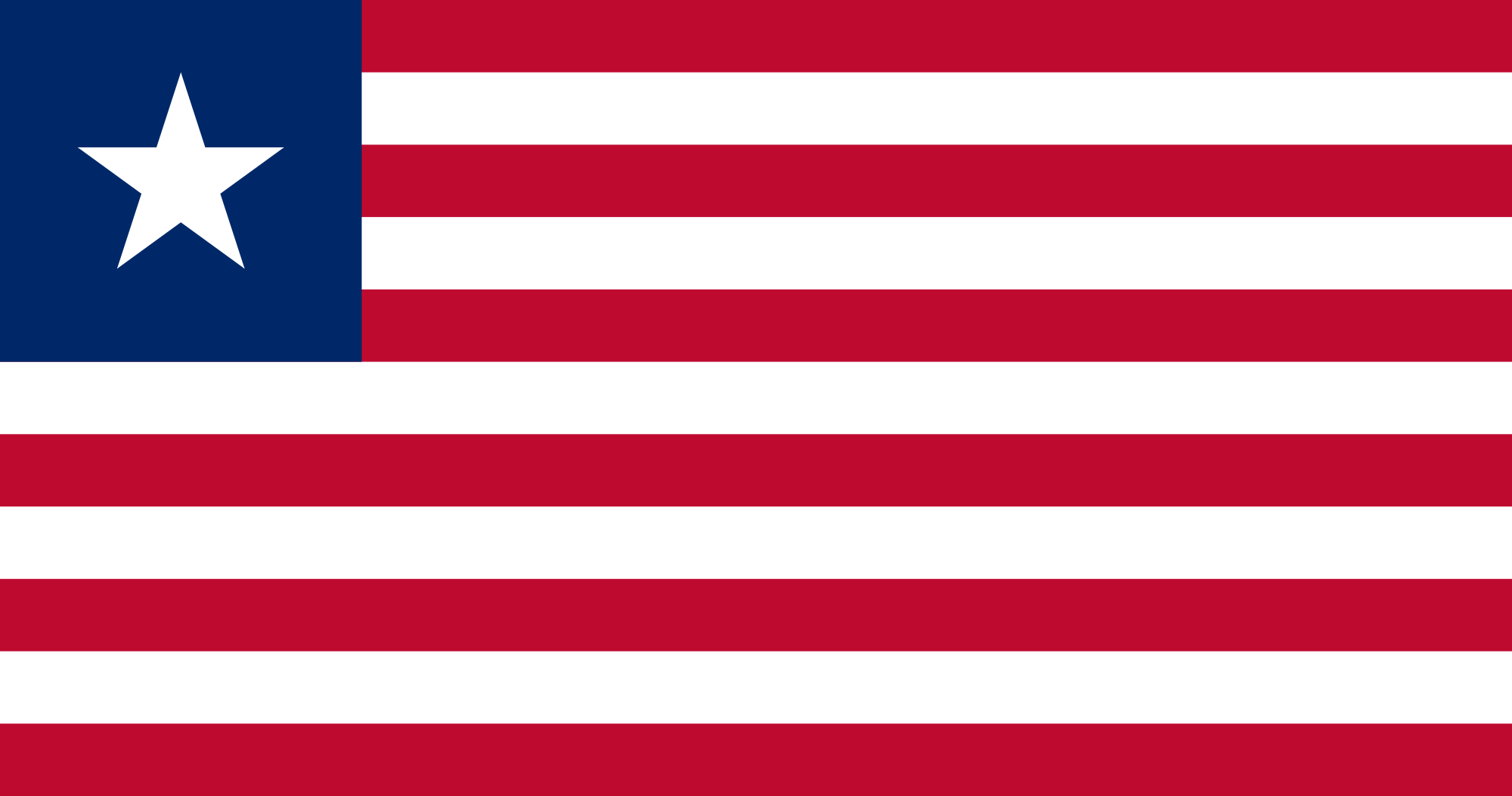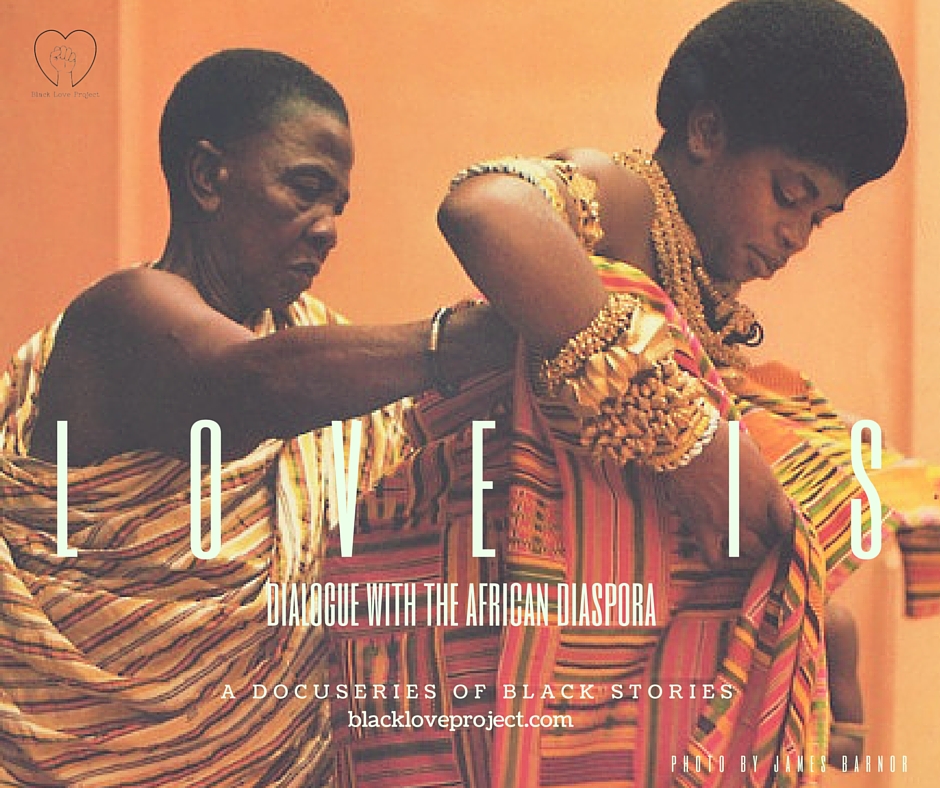Natty Dread: On Jamaican History and Hair Identity

 [audio mp3="https://blackloveproject.files.wordpress.com/2015/07/06-natty-dread.mp3"][/audio]Children get your culture/And don't stand there and just stare/Or the battle will be harder - Natty DreadAs a black person it is radical to love yourself. To be black and proud, to some, means that you are angry or uppity or a threat. In a post-colonial world (using this term lightly), the Diaspora is collectively searching for liberation. The first step in this quest is defining identity. Who are we as a people? Who am I as a black person? In what ways does my body take up space and am I proud of that? I believe these are some of the questions that have to be answered individually before unified steps can be made towards what we believe liberation to be.Black hair has and will continue to be an important measure of identity. Whether it is gelled-up, weaved-up, natural, low fade, waves; however it is that we choose to wear our hair, black people take a particular interest in our hair identity. This year makes two years that I have been growing my dreadlocks. I did not loc my hair as a spiritual journey; I was tired of the process of maintaining an afro, simple as that. However, as I'm growing and understanding myself as a black woman, my hair becomes a part of that understanding. Untangling myself from the idea that my hair may not be acceptable, particularly in corporate settings, where certain black hair styles are viewed as unprofessional. I know many people who question if they will be hired due to having natural hair. This insecurity coming from the historical measuring of black presentation against white standards of beauty.People often think of Bob Marley as nothing more than a pot smoking Rasta. However, on a deeper level, the popularity of Bob Marley represents the spread of positive black identity that has been accepted amongst the masses. Natty Dread was released in 1974 and is the vibration of the social and political tensions of Jamaica during this time. Jamaicans were collectively understanding who they were as a people. The country experienced extreme eruptions politically, musically, and religiously; giving the Diaspora a soundtrack and visual to unwavering black pride and its physical manifestation. This manifestation was the widespread visual of black people with dreadlocks which was a distinctly Jamaican message of black divinity, pride, determination and spiritual dedication to one's hair identity.Never let a politician grant you a favor/ they will always want to control you. - Revolution When the album was released, Jamaica was a social-democratic nation run by the People's National Party (PNP) representative Prime Minister Michael Manley. Contra to the PNP was the conservative Jamaican Labour Party (JLP), led by Edward Seaga. Politically speaking, it were as though Bernie Sanders had beef with Ronald Reagan. Jamaica had free education and health care, but the remnants of colonization created large racial and economic disparities. PNP and JLP took turns controlling the country and used its poor and disenfranchised constituents to fight their battles. Bipartisan bickering always trickles to the communities and Jamaica found itself entrenched in an extremely violent era.Jamaica, at this point, was only twelve-years independent, so the internal conflict reflects the newness and search for sovereignty; particularly for the poor and majority black population. Those who believed that politics, or politricks, as coined by Peter Tosh, was their saving grace, gave themselves to the fight. Neighborhoods were divided along political lines and allegiances. Self-made enforcers policed the streets, creating road blocks and check points. Police targeted citizens and financial bribes and overall corruption rotted the country. All of this stemming from the very real issue of poverty and lack of opportunity.I remember when we used to sit in the Government Yard in Trenchtown/And then Georgie would make a firelight/As it was log wood burning through the night/And we would cook cornmeal porridge/Of which I'll share with you - No Woman, No Cry In times of chaos, a person will have to choose which way they plan to survive. In Jamaica, its people seemed to choose in three different but interwoven ways; political violence, music or religion. Artists from Trenchtown began to create a very particular soundtrack of keen observations of the times. Lyrically, Natty Dread gives the story of a people who find self through religion, music and a communal identity. ini or I and I is the Rasta word for "we", taking out the individual and replacing with oneness. This influence is present in Marley's song writing as it is the voice of the marginalized and voiceless. When Marley sings of remembering Trenchtown, the story is not only his. Marley and artists like Peter Tosh, Bunny Wailer and Gregory Isaacs, all represented this bourgeoning of Jamaican culture that would impact the world. Immortalizing the stories of those most affected by the political violence and economic downturn.Natty Dread as an album covers the range of musical experimentation going on in Jamaica. Artists were influenced by music coming from America, while integrating native mento, ska and roots. It brought Jamaican patois to the forefront and lengthened the reach of Rasta's influence. Listeners were introduced to nyabinghi chants and scriptures central to Rasta teachings. HIM Haile Selassie I, who the Rastas believe to have been the living incarnate of Jesus Christ, is perhaps more associated with Rasta than for his personal history. Through this music, the world accepted the idea that a black man could govern himself according to his own law. Within the country, Marley and many others gave themselves to the teachings of Rasta teachers like Mortimo Planno and wrote their lessons of spiritual self-discovery into the music.During the 70s the Diaspora experienced pockets of musical revolution inspired by political and social unrest. Fela of Nigeria, Nina Simone and Gil Scot Heron of America, Franklin Boukaka of the Congo, all artists of the Diaspora who devoted their musical presentation to rejecting western philosophy and ideals. What is unique about Jamaica's musical revolution was the inclusion of religion. This may be the most radical release of music; black artists who openly smoked marijuana, had dreadlocks and promoted the message of belief in black divinity.Natty dreadlock inna Babylon - Natty DreadRastafari can be best described as a liberationist religion founded on the idea of black divinity, self-determination and self-reliance. Based on the Afro-centric teachings of Marcus Garvey, Rasta promotes strength in black identity and creating a connection to Africa. Through the reverence of Ethiopia's former Emperor His Imperial Majesty (HIM) Haile Selassie I, born Ras Tafari Makonnen Woldemikael, who they believe to be the promised incarnate of Jesus Christ. There are sets of rules and regulations within Rasta, pertaining to how one eats, dresses and presents themselves. This coming from the adherence to the biblical Nazarite vow, which restricts one from drinking alcohol, cutting one's hair and being in contact with a corpse. Samson of the Bible was a Nazarite and was described as having "seven locks" (Judges 16:13). Rastafarians, most but not all, adhere to these rules and the dreadlock becomes a physical reminder of the spiritual journey of man. It is also a symbol of the power of the lion, in reference to the regal title of Haile Selassie I, "Conquering Lion of the Tribe of Judah". The term "natty dread" refers to any member of the Rasta community.1974 saw an influx of Rastas moving from the mountains down into the city, Trenchtown in particular. Their teachings and way of life infiltrating the big city. For the Rasta, who marginalized in Jamaican society, living in their truth was a revolution within a revolution. Particularly in regards to presentation. There is a deep understanding that life for black men outside of Africa is inherently harsh. In order to survive, one must create ways to survive. This is not new within the Diaspora. Black people often turn to religion as a means of hope for deliverance.A Rastafarian rejects measures of European standards of beauty. Through dreadlocks, Rastafari solidified their stance of black identity. Creating a world linked directly to heaven on earth, a land for black men to govern themselves and a way to survive Babylon, the name given to downpressing (Rasta replacement for oppressing) systems. Through the spread of Marley's music, Rastafarian teachings and culture began to influence politics and the society which originally shunned it. Through albums like Natty Dread, Marley immortalized the message of black strength and pride and gave a visual of that notion. It is the parallel of Jamaican politics, music and religion that gifted the Diaspora with a different and more spiritual understanding in the link between hair and black identity. Song: Natty DreadArtist: Bob Marley & The WailersAlbum: Natty DreadWriter: Marley, Rita & Cole, AllenReleased: October 25, 1974, Island/Tuff Gong
[audio mp3="https://blackloveproject.files.wordpress.com/2015/07/06-natty-dread.mp3"][/audio]Children get your culture/And don't stand there and just stare/Or the battle will be harder - Natty DreadAs a black person it is radical to love yourself. To be black and proud, to some, means that you are angry or uppity or a threat. In a post-colonial world (using this term lightly), the Diaspora is collectively searching for liberation. The first step in this quest is defining identity. Who are we as a people? Who am I as a black person? In what ways does my body take up space and am I proud of that? I believe these are some of the questions that have to be answered individually before unified steps can be made towards what we believe liberation to be.Black hair has and will continue to be an important measure of identity. Whether it is gelled-up, weaved-up, natural, low fade, waves; however it is that we choose to wear our hair, black people take a particular interest in our hair identity. This year makes two years that I have been growing my dreadlocks. I did not loc my hair as a spiritual journey; I was tired of the process of maintaining an afro, simple as that. However, as I'm growing and understanding myself as a black woman, my hair becomes a part of that understanding. Untangling myself from the idea that my hair may not be acceptable, particularly in corporate settings, where certain black hair styles are viewed as unprofessional. I know many people who question if they will be hired due to having natural hair. This insecurity coming from the historical measuring of black presentation against white standards of beauty.People often think of Bob Marley as nothing more than a pot smoking Rasta. However, on a deeper level, the popularity of Bob Marley represents the spread of positive black identity that has been accepted amongst the masses. Natty Dread was released in 1974 and is the vibration of the social and political tensions of Jamaica during this time. Jamaicans were collectively understanding who they were as a people. The country experienced extreme eruptions politically, musically, and religiously; giving the Diaspora a soundtrack and visual to unwavering black pride and its physical manifestation. This manifestation was the widespread visual of black people with dreadlocks which was a distinctly Jamaican message of black divinity, pride, determination and spiritual dedication to one's hair identity.Never let a politician grant you a favor/ they will always want to control you. - Revolution When the album was released, Jamaica was a social-democratic nation run by the People's National Party (PNP) representative Prime Minister Michael Manley. Contra to the PNP was the conservative Jamaican Labour Party (JLP), led by Edward Seaga. Politically speaking, it were as though Bernie Sanders had beef with Ronald Reagan. Jamaica had free education and health care, but the remnants of colonization created large racial and economic disparities. PNP and JLP took turns controlling the country and used its poor and disenfranchised constituents to fight their battles. Bipartisan bickering always trickles to the communities and Jamaica found itself entrenched in an extremely violent era.Jamaica, at this point, was only twelve-years independent, so the internal conflict reflects the newness and search for sovereignty; particularly for the poor and majority black population. Those who believed that politics, or politricks, as coined by Peter Tosh, was their saving grace, gave themselves to the fight. Neighborhoods were divided along political lines and allegiances. Self-made enforcers policed the streets, creating road blocks and check points. Police targeted citizens and financial bribes and overall corruption rotted the country. All of this stemming from the very real issue of poverty and lack of opportunity.I remember when we used to sit in the Government Yard in Trenchtown/And then Georgie would make a firelight/As it was log wood burning through the night/And we would cook cornmeal porridge/Of which I'll share with you - No Woman, No Cry In times of chaos, a person will have to choose which way they plan to survive. In Jamaica, its people seemed to choose in three different but interwoven ways; political violence, music or religion. Artists from Trenchtown began to create a very particular soundtrack of keen observations of the times. Lyrically, Natty Dread gives the story of a people who find self through religion, music and a communal identity. ini or I and I is the Rasta word for "we", taking out the individual and replacing with oneness. This influence is present in Marley's song writing as it is the voice of the marginalized and voiceless. When Marley sings of remembering Trenchtown, the story is not only his. Marley and artists like Peter Tosh, Bunny Wailer and Gregory Isaacs, all represented this bourgeoning of Jamaican culture that would impact the world. Immortalizing the stories of those most affected by the political violence and economic downturn.Natty Dread as an album covers the range of musical experimentation going on in Jamaica. Artists were influenced by music coming from America, while integrating native mento, ska and roots. It brought Jamaican patois to the forefront and lengthened the reach of Rasta's influence. Listeners were introduced to nyabinghi chants and scriptures central to Rasta teachings. HIM Haile Selassie I, who the Rastas believe to have been the living incarnate of Jesus Christ, is perhaps more associated with Rasta than for his personal history. Through this music, the world accepted the idea that a black man could govern himself according to his own law. Within the country, Marley and many others gave themselves to the teachings of Rasta teachers like Mortimo Planno and wrote their lessons of spiritual self-discovery into the music.During the 70s the Diaspora experienced pockets of musical revolution inspired by political and social unrest. Fela of Nigeria, Nina Simone and Gil Scot Heron of America, Franklin Boukaka of the Congo, all artists of the Diaspora who devoted their musical presentation to rejecting western philosophy and ideals. What is unique about Jamaica's musical revolution was the inclusion of religion. This may be the most radical release of music; black artists who openly smoked marijuana, had dreadlocks and promoted the message of belief in black divinity.Natty dreadlock inna Babylon - Natty DreadRastafari can be best described as a liberationist religion founded on the idea of black divinity, self-determination and self-reliance. Based on the Afro-centric teachings of Marcus Garvey, Rasta promotes strength in black identity and creating a connection to Africa. Through the reverence of Ethiopia's former Emperor His Imperial Majesty (HIM) Haile Selassie I, born Ras Tafari Makonnen Woldemikael, who they believe to be the promised incarnate of Jesus Christ. There are sets of rules and regulations within Rasta, pertaining to how one eats, dresses and presents themselves. This coming from the adherence to the biblical Nazarite vow, which restricts one from drinking alcohol, cutting one's hair and being in contact with a corpse. Samson of the Bible was a Nazarite and was described as having "seven locks" (Judges 16:13). Rastafarians, most but not all, adhere to these rules and the dreadlock becomes a physical reminder of the spiritual journey of man. It is also a symbol of the power of the lion, in reference to the regal title of Haile Selassie I, "Conquering Lion of the Tribe of Judah". The term "natty dread" refers to any member of the Rasta community.1974 saw an influx of Rastas moving from the mountains down into the city, Trenchtown in particular. Their teachings and way of life infiltrating the big city. For the Rasta, who marginalized in Jamaican society, living in their truth was a revolution within a revolution. Particularly in regards to presentation. There is a deep understanding that life for black men outside of Africa is inherently harsh. In order to survive, one must create ways to survive. This is not new within the Diaspora. Black people often turn to religion as a means of hope for deliverance.A Rastafarian rejects measures of European standards of beauty. Through dreadlocks, Rastafari solidified their stance of black identity. Creating a world linked directly to heaven on earth, a land for black men to govern themselves and a way to survive Babylon, the name given to downpressing (Rasta replacement for oppressing) systems. Through the spread of Marley's music, Rastafarian teachings and culture began to influence politics and the society which originally shunned it. Through albums like Natty Dread, Marley immortalized the message of black strength and pride and gave a visual of that notion. It is the parallel of Jamaican politics, music and religion that gifted the Diaspora with a different and more spiritual understanding in the link between hair and black identity. Song: Natty DreadArtist: Bob Marley & The WailersAlbum: Natty DreadWriter: Marley, Rita & Cole, AllenReleased: October 25, 1974, Island/Tuff Gong






